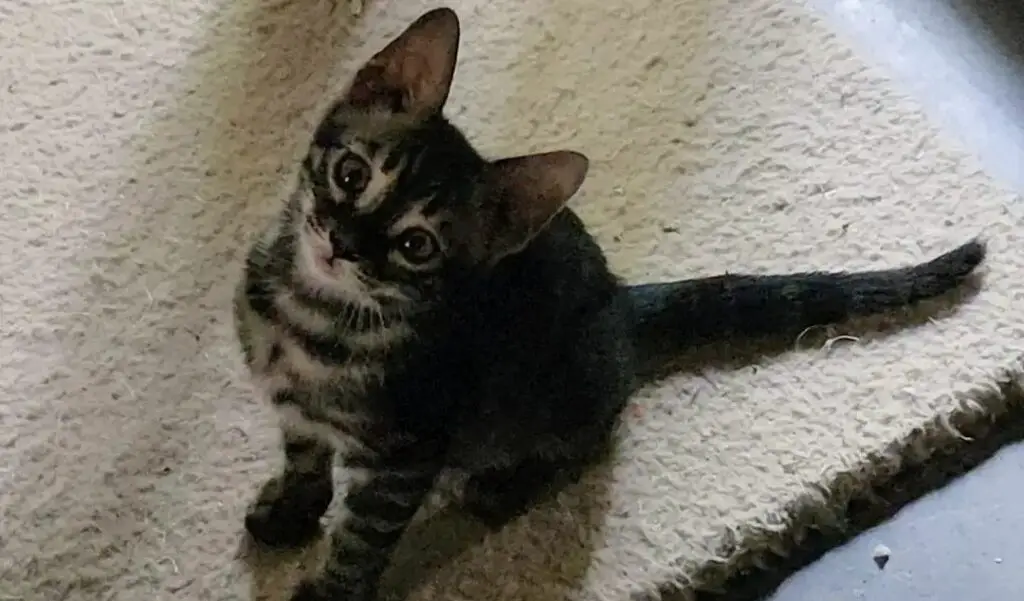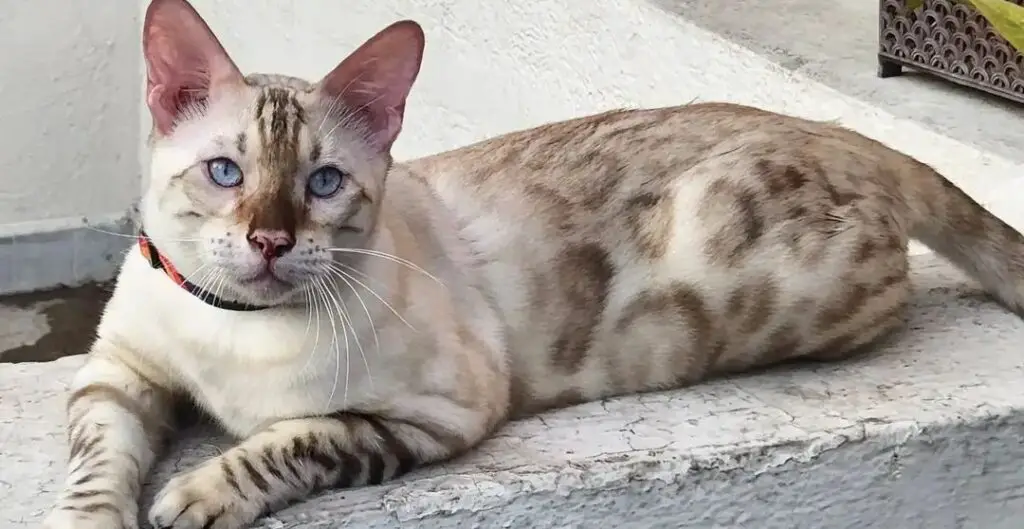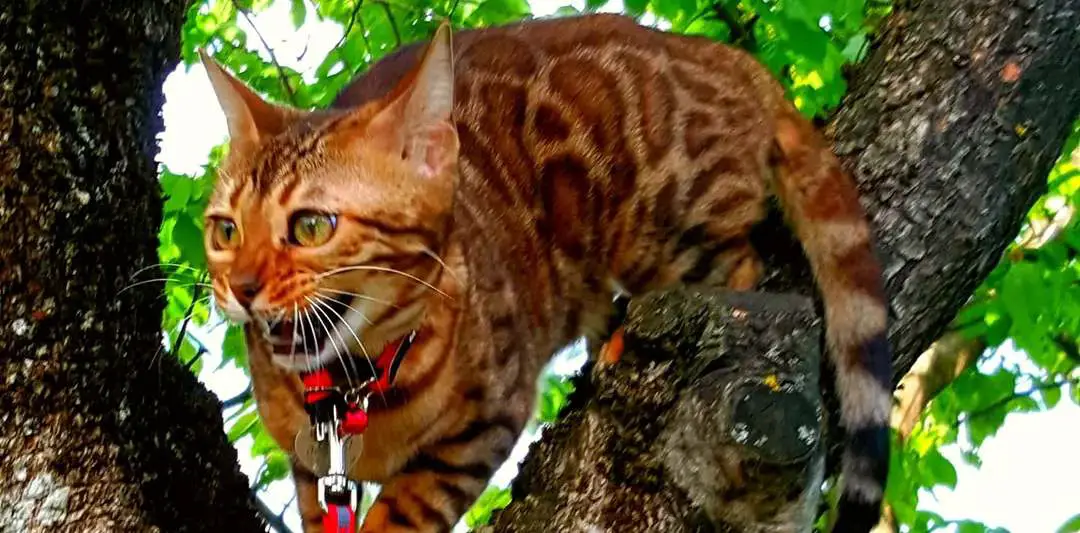I have a male cat named Max, and I understand the signs your cat needs to be neutered, which is what I will be discussing in this post.
In this post, I’ll be sharing some of the most common signs your cat needs to be neutered based on my opinion as a cat owner and the information I gathered from other cat owners.
Keep reading to find out more…
Signs Your Cat Needs to Be Neutered
In my opinion as a cat owner, here are some of the most common signs your cat needs to be neutered:
1. Consistent spraying (territory marking)

Based on the information I gathered about neutering cats, I can tell you that one unmistakable sign that your cat needs to be neutered is consistent spraying or territory marking.
This spraying and territory-marking behavior is more common in male cats, but some females can exhibit it as well.
You’ll notice your cat urinating on vertical surfaces, such as walls or furniture, leaving a pungent and distinct odor.
How to identify this behavior: To identify this behavior in cats, you will detect a strong, musky smell in your home or notice small amounts of urine in unusual places, such as door frames or corners, this means your cat may be spraying.
What to do: To address this behavior, it’s crucial to have your cat neutered, as neutering your cat will significantly reduce or eliminate spraying altogether.
I strongly advise you should always clean affected areas with enzymatic cleaners to remove the scent and discourage further marking.
2. Consistent roaming in search of females
Unneutered male cats have a strong instinct to search for female mates, often leading to excessive roaming, which can lead to avoidable issues.
This behavior can result in your cat going missing for extended periods, increasing the risk of accidents, injuries, or encounters with other animals.
How to identify this behavior: If your male cat frequently tries to escape or becomes more restless, constantly pacing near doors and windows, it may be a sign that he is searching for potential mates and needs to be neutered.
What to do: To prevent your cat from getting lost or injured, you should consider having him neutered as early as you can.
Based on the information I gathered, I can tell you that neutering will reduce his urge to roam and minimize his exposure to potential dangers.
You should also provide plenty of mental and physical stimulation through interactive play and environmental enrichment to keep him content and engaged indoors.
3. Consistent aggression towards other males
Unneutered male cats are prone to territorial aggression, especially towards other males.
This behavior can lead to fights, injuries, and even the transmission of diseases like feline immunodeficiency virus (FIV) or feline leukemia virus (FeLV).
How to identify this behavior: If your male cat displays aggressive behavior like hissing, growling, lunging, or fighting with other male cats, it is likely a sign of territorial aggression which can be controlled by neutering.
What to do: Neutering your cat can effectively reduce aggressive tendencies toward other male cats.
However, if your cat has already developed aggressive habits, I recommend you consult with a professional animal behaviorist or your veterinarian for guidance on managing and modifying his behavior.
4. Consistently exhibiting mounting behavior
Mounting or humping behavior is not exclusive to unneutered male cats, but it is more prevalent in them.
This behavior can be directed towards other animals, objects, or even humans, and can be quite embarrassing for cat owners.
Identifying this behavior: If your cat frequently displays mounting behavior, such as humping blankets, pillows, or other pets, it’s a clear indication that he needs to be neutered.
What to do: Having your cat neutered will greatly diminish mounting behavior by reducing the levels of testosterone in his system.
If your cat continues this behavior after neutering, I advise you to consult your veterinarian for further advice on behavior modification techniques.
5. Frequent fighting with other males

If your male cat is frequently getting into fights with other males, it may be a sign that he needs to be neutered.
Unneutered male cats often display territorial aggression, leading to conflicts with other males in the area.
Identifying this behavior: Watch for aggressive behavior such as hissing, growling, and physical altercations with other male cats.
Frequent fights or injuries sustained during fights are clear indicators that your cat needs to be neutered.
What to do: Neutering your cat will significantly reduce his aggressive tendencies and minimize the risk of injuries and potential transmission of diseases.
You should consult with your veterinarian to schedule the appropriate time for the neutering procedure.
6. Consistent desire to escape the house
If your cat consistently displays a strong desire to escape the house, it may be a sign that he is seeking potential mates, you should likely neuter your cat.
Unneutered male cats have an instinct to roam in search of female cats in heat, which can put them in dangerous situations.
Identifying this behavior: Observe your cat’s behavior around doors and windows. If he frequently attempts to slip out or becomes restless when confined indoors, it’s likely a sign that he needs to be neutered.
What to do: Neutering your cat will help reduce his urge to roam and minimize the risks associated with outdoor adventures.
You should also ensure your cat has plenty of mental and physical stimulation within the home, such as interactive toys and playtime, to keep him content and engaged.
7. Consistent and excessive grooming of the genital area

Another sign that your cat needs to be neutered is consistent and excessive grooming of the genital area.
Unneutered cats may exhibit this behavior due to the presence of reproductive hormones.
Identifying this behavior: If you notice your male cat obsessively licking or grooming his genital area, it could be a sign that he needs to be neutered.
Excessive grooming in this region may lead to irritation or even the development of infections.
What to do: Having your cat neutered will help reduce the hormone levels responsible for this grooming behavior.
If the excessive grooming persists after neutering, you should consult with your veterinarian to rule out any underlying medical issues.
8. Increased attention from other cats
If you’ve noticed an increase in attention from other cats towards your unneutered cat, it could be a strong indication that he needs to be neutered.
Other cats, both male and female, may be drawn to the scent and behavior of an unneutered cat.
How to identify this behavior: Observe how other cats interact with your cat. If they display heightened interest, persistent following, or attempts to mate, it suggests that your cat is emitting signals that attract others due to his reproductive status.
What to do: Neutering your cat will decrease the likelihood of other cats being attracted to him.
This can help reduce the potential for fights, unwanted pregnancies, and the spread of diseases.
You should schedule an appointment with your veterinarian to discuss the neutering procedure.
9. Constant pacing and restlessness around female cats
If your male cat displays constant pacing and restlessness around female cats, it’s a strong indication that he needs to be neutered.
Unneutered males have a natural instinct to seek out females in heat, which can lead to frustration and disruptive behavior.
How to identify this behavior: To identify this behavior, you should observe your cat’s behavior when in the presence of female cats.
If your cat becomes excessively agitated, follows them persistently, or engages in vocalization, it suggests a strong desire to mate.
What to do: Having your cat neutered will help reduce his hormonal drive and alleviate his restlessness around females.
Neutering will also prevent unwanted litters and minimize the risk of your cat contracting diseases from mating or fighting.
You should schedule an appointment with your veterinarian to discuss the neutering procedure.
Related: Behaviors of a male cat after mating.
10. Consistent and excessive vocalization

Consistent and excessive vocalization is another sign that your cat may need to be neutered.
Unneutered cats tend to vocalize more frequently, especially when they are trying to attract females or establish their territory.
Identifying this behavior: Pay attention to your cat’s vocalizations. If you notice an increase in loud or persistent vocalization, particularly in response to other cats or during specific times of the year, it may be a sign that your cat is experiencing hormonal changes.
What to do: Neutering your cat can significantly reduce his desire to vocalize excessively.
It will also help minimize territorial behaviors and reduce the chances of conflicts with other cats.
You should consult with your veterinarian to determine the best timing for the neutering procedure.
Related: Behaviors of a male cat after neutering.
Final Thoughts
In summary, recognizing the signs that your cat needs to be neutered is crucial for their overall well-being.
Keep an eye out for behaviors like spraying, aggression, or roaming tendencies, as these may indicate the need for the procedure.
Remember, neutering not only helps prevent unwanted litters but also promotes a healthier and happier life for your furry companion.
Related: Behaviors of unneutered male cats.
Related Questions
How Do I Know If My Indoor Cat Needs to Be Neutered?
If your indoor cat is exhibiting behaviors like spraying, marking territory, or showing aggression, it may be a sign that they need to be neutered. Additionally, if your cat is experiencing stress due to coming into heat, it’s a good idea to consider neutering them. Consult with your veterinarian to determine the best course of action for your cat.
What Are the Benefits of Neutering My Cat?
Neutering your cat can prevent unwanted litter, reduce the risk of certain health issues like uterine infections and prostate disease, and even lower the likelihood of your cat developing certain types of cancer. It can also help reduce undesirable behaviors like spraying and roaming. Overall, neutering can significantly improve your cat’s health and well-being.
Related: Male cat behaviors during mating season.
Can My Cat Still Be Neutered If They’re Older?
Yes, neutering your older cat can still be beneficial. While there may be some additional risks involved, the procedure is generally safe and can help prevent health issues that may arise later in life. Consult with your veterinarian to determine the best approach for your older cat.
How Do I Know If My Cat Is Recovering Properly After Neutering?
Monitor your cat’s incision site for signs of infection, such as swelling, redness, or discharge. Also, ensure they are eating and drinking normally, and not exhibiting any unusual behaviors. If you notice any issues or concerns, consult with your veterinarian for guidance.









